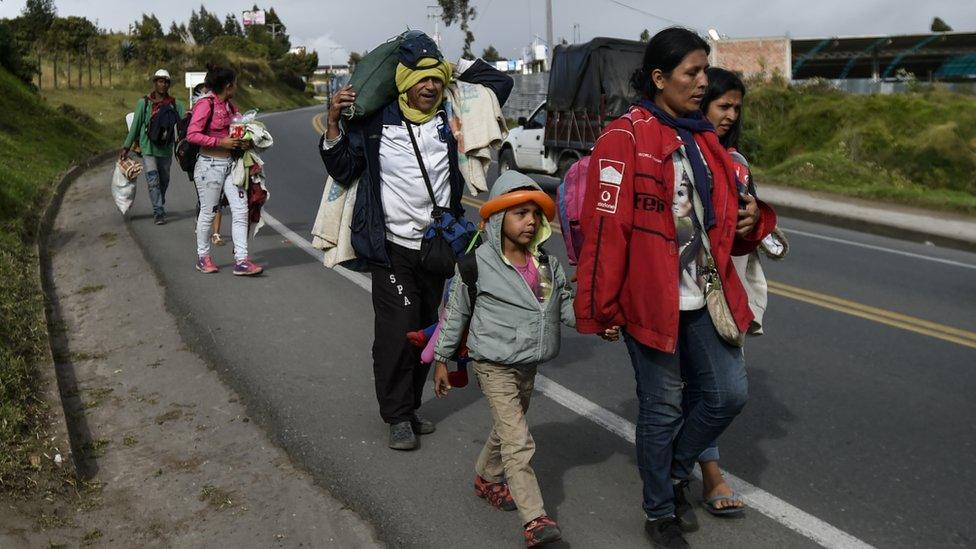Venezuela's Juan Guaidó faces sabotage investigation
- Published
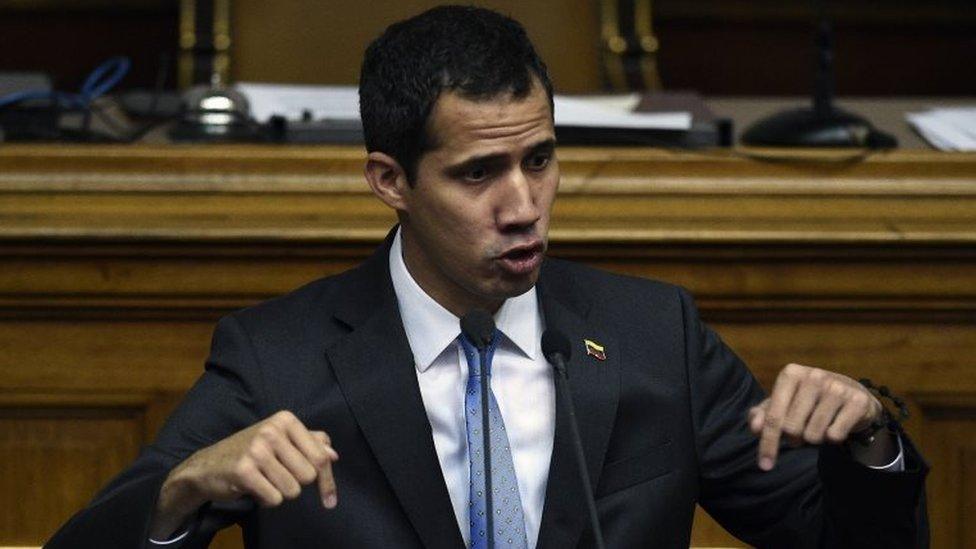
Juan Guaidó will be investigated by the Supreme Court for alleged sabotage
Venezuela's Chief Prosecutor Tarek Saab says he has asked the Supreme Court to investigate opposition leader Juan Guaidó for allegedly sabotaging the country's electrical system.
Much of Venezuela has been without power since Thursday afternoon.
President Nicolás Maduro has said that "US technology" was used to sabotage the electricity grid and has pointed the finger at the opposition.
Mr Guaidó says it is down to government mismanagement.
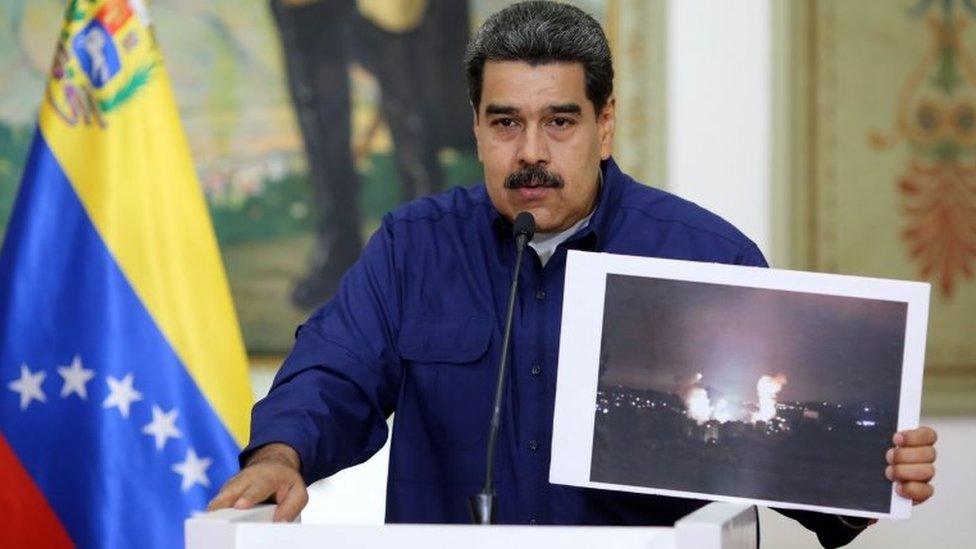
President Maduro said "justice" would be done
Mr Saab's announcement came just hours after President Maduro had said in a televised message to the nation that "the hour of justice has come" and that the "justice [system] will go after the person behind this criminal attack against the Venezuelan electricity system".
Separately, the US is preparing to impose "very significant" additional sanctions against Venezuelan financial institutions in the coming days, its special envoy Elliott Abrams has said, without giving any further details.
The US has already imposed sanctions designed to curtail Venezuelan oil sales, and has targeted a growing list of individuals and companies linked to the Maduro government.
Stand-off
The move against Mr Guaidó comes at a moment of high tension in the country, with he and Mr Maduro each claiming to be the constitutional president of Venezuela.
The two men have been at loggerheads since Mr Guaidó declared himself interim president on 23 January, arguing that the election which returned Mr Maduro to power for a second term last May was neither free nor fair.
Shortly after that move, his assets were frozen and the Supreme Court, which is dominated by government loyalists, placed a travel ban on Mr Guaidó.
The 35-year-old opposition leader defied that ban last month when he toured Latin American countries to garner support.
He had been widely expected to be arrested upon his return but when he flew into Caracas' main airport on 4 March, he was "warmly welcomed" by immigration officers, according to his own account.
He has continued to call for President Maduro to step aside and urged the security forces, which have mainly been loyal to the government, to switch sides.
Blame game
Following the devastating power cut on Thursday, which has plunged much of the country into darkness and which is still ongoing in many areas, the two sides blamed each other for the electricity crisis.
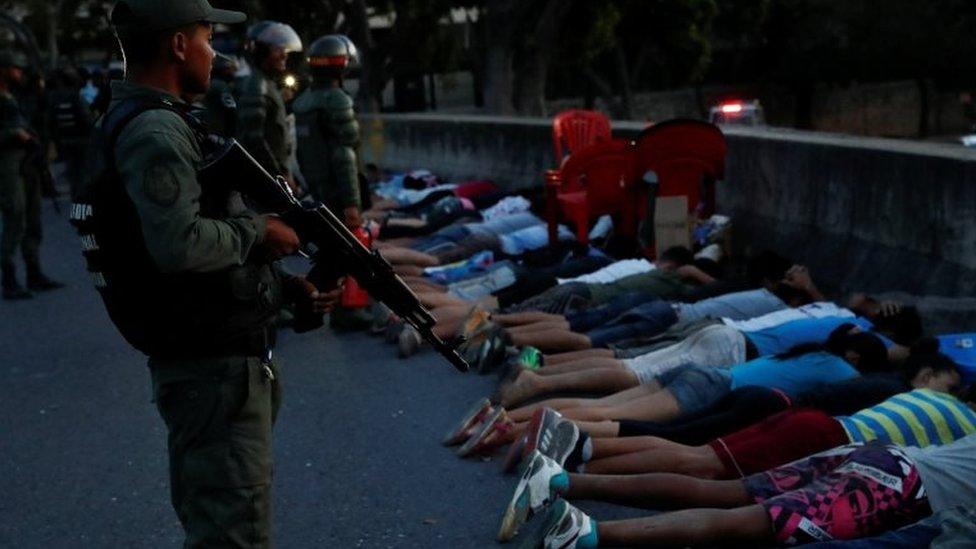
Looting broke out in Caracas on Sunday night as residents grew desperate for food
President Maduro has alleged - without giving any evidence - that the power cut is the result of "electromagnetic and cyber attacks" on the grid, which he said were orchestrated from the US and carried out with high-end US technology.
Chief Prosecutor Saab said Mr Guaidó would be investigated for allegedly being "one of the intellectual authors" of these attacks.
Before Mr Guaidó's return to Venezuela, US Vice-President Mike Pence warned the Maduro government that threats against the opposition leader would not be tolerated.
In other developments:
Prominent journalist Luis Carlos Díaz has been arrested after he was accused of playing a role in the blackout
The US state department announced it would withdraw all diplomatic staff from Venezuela this week due to the "deteriorating situation"
Twenty-four people are reported to have died as a result of the power cut, according to a tally kept by an opposition lawmaker
Migration officials in Colombia say a cousin of Nicolás Maduro and some of that cousin's relatives tried to enter Colombia to escape the "unbearable heat" during the continuing power cut. Colombian migration officials did not let them in
- Published12 March 2019

- Published10 March 2019
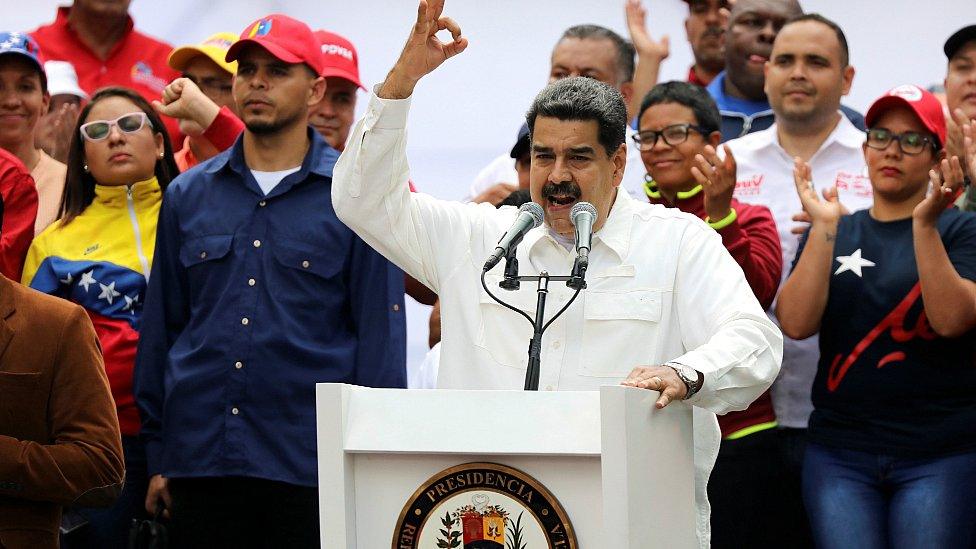
- Published30 December 2018
